Sign up for the GI Daily here to get the biggest news straight to your inbox
Welcome to our ninth conflict minerals report, our annual look at game companies' efforts to ensure their business isn't fueling armed conflict, slave labor, child soldiers, and other human rights abuses.
We'll go into detail about 10 different companies' disclosures on conflict minerals below. We're skipping a few from last year because they either no longer use the minerals in question (Activision Blizzard), aren't required to disclose numbers of substance (HTC, Razer), or because they could not be bothered to respond to our inquiries for the fifth straight year and apparently won't be shamed into caring about the subject in the least (Valve).
But that still leaves some of the biggest and most influential companies in the world, companies whose attention to the problem – or lack thereof – has significant ramifications.
This year's numbers reflect something we've been told for years now: Companies are deprioritizing the issue
This year's numbers reflect something we've been told for years now: That conflict minerals concerns simply aren't "trendy" any more, and companies are deprioritizing the issue as a result.
Conflict minerals sourcing gathered a lot of attention in the mid-2000s, specifically around how mining companies in the Democratic Republic of Congo had formed ties with various armed groups to control the country's goldfields and other natural resources. Those armed groups waged war with each other to wrest and maintain control of those resources, often using children as laborers or soldiers.
US legislators were moved enough to include regulations around conflict minerals in the 2010 Dodd-Frank Wall Street Reform and Consumer Protection Act, with the law requiring companies to file annual disclosures on the sourcing of four minerals – tin, tungsten, tantalum and gold, collectively known as 3TGs – associated with the crisis in the country.
This required companies to actually ask their suppliers where they got the raw materials for their products through a conflict minerals reporting template (CMRT) survey. And when the suppliers gave them a list of smelters and refiners (SORs), the companies had to ensure those smelters/refiners had gone through a third-party audit to ensure their supply chain was conflict-free.
The first wave of required disclosures in 2014 was grim. Many companies had trouble even getting their suppliers to respond to inquiries on the subject. Over time, the numbers improved, the percentage of non-audited smelters/refiners tended to shrink, and by the time companies were reporting their numbers for 2019, most had made dramatic improvements in the visibility and control they had of their supply chains.
But as the numbers rose, companies seemed to be more content about their progress. They copied and pasted large chunks of their disclosures from the previous year's forms, swapping out the numbers where appropriate. They stopped talking as much about new initiatives, or what they would do to ensure the following year's numbers would be even better.
Rising awareness of slave labor in cobalt mining has drawn the focus off conflict minerals
At the same time, rising awareness of slave labor in cobalt mining has drawn the focus off conflict minerals, even among the company divisions and watchdog groups who were most likely to push for improvements on conflict minerals.
The push to clean up cobalt mining is absolutely welcome, but if all ethical sourcing efforts are having to draw from the same finite pool of attention and resources, that's a huge problem considering the Organisation for Economic Co-operation and Development (OECD) has also been raising alarms about armed conflict in North America, South America, Afghanistan, and more over iron, jade, and talc, as well as slave labor in India's mica supply chains, Colombia's coal mines, Bolivian zinc mines, and Angolan diamond mines.
So Dodd-Frank's focus on 3TGs, particularly those from the Democratic Republic of Congo and neighboring countries, is obviously too narrow to fully address the problem. But it's also the only real insight we are sure to get year-to-year, and the disclosure forms give us apples-to-apples numbers to track companies' progress on that front.
Or in too many instances this year, their regression.
Before we get into the company-by-company breakdown, we'll note that there's a helpful glossary of all the common terms used in the write-ups at the end of this article should you run into any unfamiliar terminology.
Company-by-company performance
Microsoft
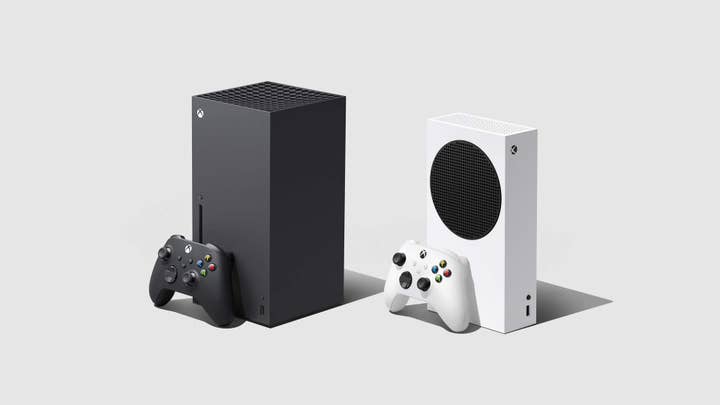
"Microsoft found no reasonable basis for concluding that any 3TG Smelter or Refiner ('SOR') that was identified in Microsoft Devices supply chain for the 2021 Reporting Year sourced 3TGs in a manner that directly or indirectly financed or benefitted armed groups in a Covered Country."
That's a line from the introduction of last year's Microsoft conflict minerals report, a line Microsoft began including in its reports starting with the 2019 reporting year.
That line does not appear in this year's report, raising the concerning idea that Microsoft did have reason to believe it funded militias in or around the Democratic Republic of Congo last year.
Worried about reading too much into the line's absence, we reached out to Microsoft to ask if the company believes its supply chain financed armed groups during the 2022 reporting year.
The company's spokesperson said they had "nothing to share" beyond what was in the report.
Even if Microsoft didn't discover it was funding human rights abuses, it may have been prudent to take that line out of the report while it was still true, considering the trajectory of its supply chain due dilligence in recent years.
For 2022, only 65% of SORs in Microsoft's chain had passed a third-party audit
The percentage of conformant SORs in Microsoft's supply chain has been sliding dramatically since 2019's high of 99.6%. For 2022, only 65% of SORs in Microsoft's chain had passed a third-party audit.
Even within the Democratic Republic of Congo and the neigboring "Covered Countries" that represent the clearest risk and the focus of the US law mandating these conflict minerals disclosures, only 88% of Microsoft's SORs had passed an audit.
Microsoft also has an issue with a handful of SORs in its supply chain that have "strongly communicated a lack of interest" in ever becoming conformant. In this year's report there are six such operations, up from five the year before and four the year before that.
While Microsoft says a failure to ensure conformance might result in the company terminating its business with suppliers, it also says in each of those reports that it "did not identify a SOR nonconformance that supported business termination with any in-scope supplier."
GameStop
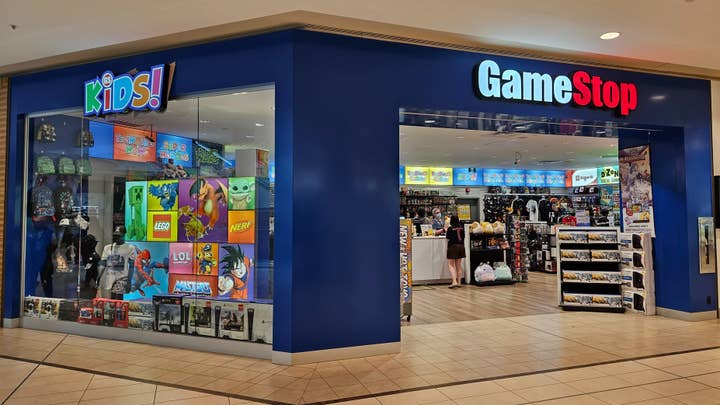
GameStop uses 3TGs in some of the parts it uses to refurbish consoles, as well as in some of the toys, accessories, and merchandise it manufactures.
While the retailer has been almost an afterthought in our previous conflict minerals reports, we're moving it up the line this year because 2022 saw its supply chain expand considerably while the confirmed conflict-free portion of that chain plummeted.
Last year, GameStop's reporting was unremarkable. It received a 100% response rate from its suppliers, and said 14 of the 16 SORs they collectively used were certified as conflict-free.
This year's numbers were more remarkable, both for the backsliding and for the phrasing GameStop used in trying to obscure just how much worse the numbers were.
"We identified the names of 50 smelters/refineries in our supply chain. All but 31 of the identified smelters have been confirmed to be CFSI certified conflict-free smelters. Not all of our suppliers, however, identified the sources for their raw materials."
"All but 31" means that only 19 of the 50 SORs identified in GameStop's supply chain were certified conflict-free, or 38%. That's a steep drop from the 87.5% conflict-free mark from last year.
The company did not give any explanation for the drop, and said for 2023 it planned to continue the risk mitigation efforts it made in 2022, the same efforts that produced this dismal performance.
"We take our social responsibilities very seriously and are committed to sourcing products from other companies that share our values regarding respect for human rights, integrity and environmental responsibility," the company said in its filing.
Sony

Like many of the companies on this list, Sony's numbers on conflict minerals sourcing have been sliding in recent years. It's just been a less precipitous decline than the outfits above because Sony never posted particularly impressive numbers on this front to begin with.
In this year's report, Sony said 246 of the 337 SORs of 3TGs in its supply chain were conformant, or about 73%. That's down from a 75% conformant rate the previous year, which is down from rates in the low 80s it posted for years up until 2020.
One area where Sony has improved over the years is in actually getting its suppliers to answer its questions about where they get their minerals from. This marks the third straight year Sony can claim a 100% response rate from suppliers, which is an embarrassingly low bar but one the company struggled to clear for years.
But even now, Sony seems to give its suppliers a considerable amount of slack. For any suppliers that sourced from non-conformant SORs, Sony requested the suppliers to encourage those SORs to undergo an audit and remove any unwilling ones from the supply chain.
Sony identified 69 suppliers this year who were using such smelters/refiners. Only 22 told Sony they would take steps to improve their sourcing. Sony says it "may" stop doing business with suppliers who don't cooperate, but even admits that step would only be taken after "numerous requests and reminders" fail to produce the desired improvement.
Also concerning is Sony's ignorance about where a considerable amount of its conflict minerals are coming from. Of the 91 non-conformant smelters/refiners the company identified, it doesn't even know the location and/or the mine of origin for 64 of them.
As for what the company is doing right, separate from its required disclosure, Sony has said it treats its cobalt sourcing to a similar due diligence process to conflict minerals, and it also makes donations to a fund that pays for the costs of an initial audit for non-conformant smelters/refiners.
Nintendo
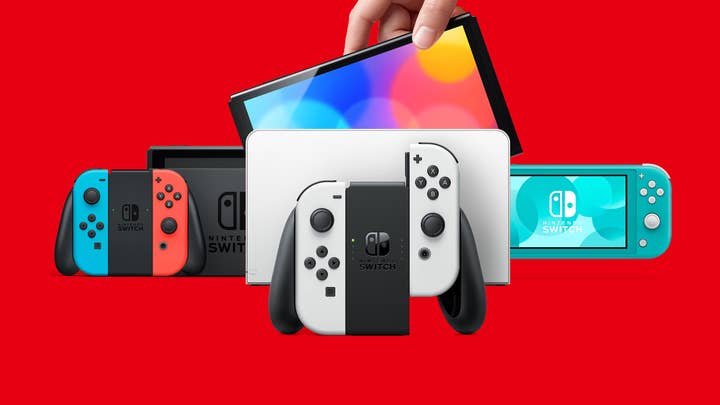
Nintendo reports its figures a little differently than many of the other companies here because it's not actually required to file disclosures under US law. However, it does report equivalent details on its corporate social responsibility page each year, as well as cobalt sourcing figures.
Unfortunately, the Switch maker continues the trend of declining numbers this year, although it was still considerably better on this front than its fellow console makers.
Nintendo reported 318 successfully audited SORs in its supply chain out of 335, a nearly 95% conformant rate. That's down from the previous year's 99%.
In happier news, Nintendo appears to be a little more responsive to international best practices in conflict minerals sourcing than in previous years.
In the past, Nintendo made improvements to its sourcing by refusing to use minerals from conflict-affected and high-risk areas (CAHRAs), which isn't ideal because in many of those areas, mining has the most significant potential to build the local economy and create stability. While avoiding all sourcing from the Democratic Republic of Congo and CAHRAs may technically be in keeping with OECD guidance on conflict minerals, it runs counter to the spirit of the guidance.
Encouragingly, Nintendo's website has dropped all mention of its previous policy to not source minerals from CAHRAs, and the company's most recent list of SORs added four cobalt operations in the Democratic Republic of Congo itself.
Amazon
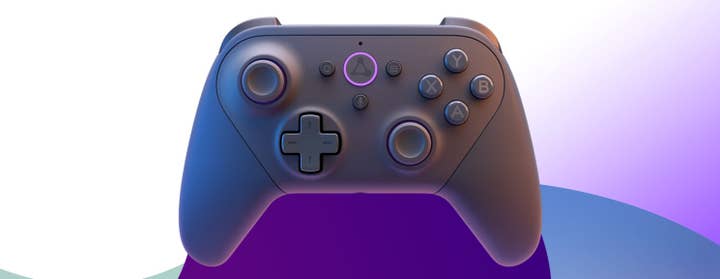
The gaming specific part of Amazon's 3TG use is limited, as Fire tablets and Luna cloud gaming only have so much market share.
That said, when you consider the Echos, the Rings, and the rest of Amazon's consumer products that could rely on conflict minerals, the company's apparent apathy toward ethical sourcing disclosures is that much more concerning.
If you've read one of our conflict mineral features in recent years, you probably know what to expect from the Amazon section, so we'll just cut and paste the rest of this section from previous years, because that's what Amazon does with its annual reports. However, we will include updated numbers where necessary:
Ever since Amazon first had to file a minerals disclosure on its supply chain in 2014, it has said the same thing: that "a majority" of its suppliers had certified that their supply chain was clean, either because they didn't use 3TGs, didn't source them from the Covered Countries, or used only conformant SORs.
As for what the situation is with the suppliers who might be perpetuating slave labor or armed conflict – which, given its vague disclosures, could be almost 50% of the more than 1,600 suppliers it works with – Amazon only said, "The remaining suppliers are still completing investigations of their supply chains."
That was word-for-word what the company reported last year. And the year before that. And every year since 2014.
In ten years of filings, Amazon has never given an indication as to how large a majority of its suppliers filled out their CMRT surveys or how many are still investigating their supply chains. There's no telling how many SORs they might collectively source from, much less whether those SORs would be funding militias and/or human rights abuses.
Amazon has shown zero demonstrable progress on conflict minerals since reporting began.
Apple
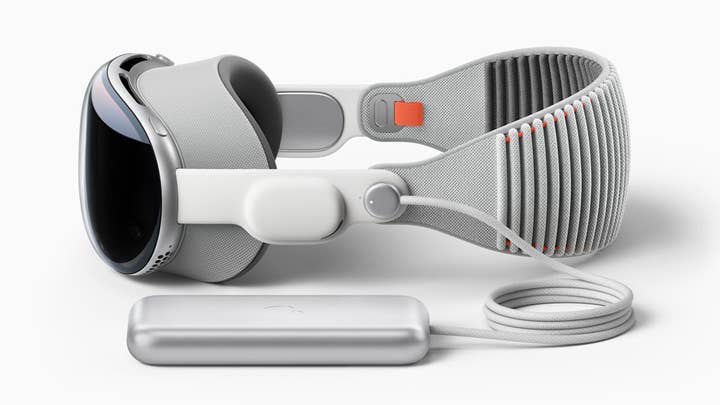
About a dozen years ago, Apple was one of the larger targets of criticism when it came to ethical sourcing of minerals.
"As one of the world's leading electronics companies, Apple has the trend-setting power to influence the entire industry. If every electronics company ensured that the minerals used in its products were conflict-free, rebel and militia groups would be denied the estimated $180 million they make each year and use to terrorize the communities of eastern Congo," the non-profit Enough Project wrote in pressuring the company to take action in 2010.
The message was apparently received, and in the years since, Apple has led the way in cleaning up its supply chain.
This year's report marks the eighth straight time that Apple has reported 100% of the SORs in its supply chain have been certified conflict-free or are in the midst of obtaining such certification.
As welcome as that number is, it comes largely as a result of pruning upstream suppliers who won't (or can't) obtain conflict-free certification. Since 2009, Apple has excised 198 3TG SORs from its supply chain for those reasons, including 23 of the total 261 smelters/refiners it identified in its chain last year.
While Apple's willingness to cut ties incentivizes its suppliers to undergo the auditing process, achieving a certified conflict-free supply chain is less impressive if you can't maintain it and only get to that point by jettisoning as much as 9% of the SORs in your supply chain each year.
In addition to its due diligence around sourcing new 3TGs, Apple has also recognized the need to make better use of minerals that have already been extracted. The company's latest report states that in 2021, almost 20% of all material used in Apple products was recycled, and re-stated its goal to eventually use exclusively recycled and renewable materials.
Google/Alphabet

At first glance, Google is a lot like Apple, a big tech company reporting insight into its supply chain that rivals pretty much anyone out there.
For the sixth straight year, Google reported that 100% of the SORs in its supply chain (277 in total) are either certified conflict-free, in the process of obtaining that certification, or confirmed to be getting their 3TGs from some place other than the Covered Countries.
But Google is also a lot like Amazon, in that its disclosure report is largely cut and pasted from last year's.
That's not overly concerning when the report is still showing a company with a good handle on its supply chain and ethical minerals sourcing, but it does make it easy to spot the differences from year to year, many of which suggest Google may be less invested in the subject than it was previously.
For example, last year's disclosure said the company participated in seven Responsible Minerals Initiative advisory and subcommittee groups, but this year that number is down to a single subcommittee.
As for ongoing efforts to improve its compliance processes, Google trimmed last year's pledges by nearly half. Gone are the commitments to support education campaigns and to continue participating in a variety of industry audit and steering committees and non-profit boards.
Gone are the pledges to expand the Congo Power program it established "to provide energy resources to communities committed to responsible sourcing," as well as the commitment "to continue to address incidents and allegations through collaboration with relevant stakeholders while also working to support stronger chain of custody and traceability systems."
That last one is a little more concerning when you notice that the company's affirmation that it has a grievance mechanism for reporting violations of its conflict minerals policies is likewise absent this year, along with the note about its participation in the Responsible Minerals Initiative Minerals Grievances Platform risk-awareness system.
This year's report also makes no mention of the company's previous blockchain-based minerals tracing efforts, which, depending on your attitude toward blockchain, might be an improvement.
Meta/Facebook
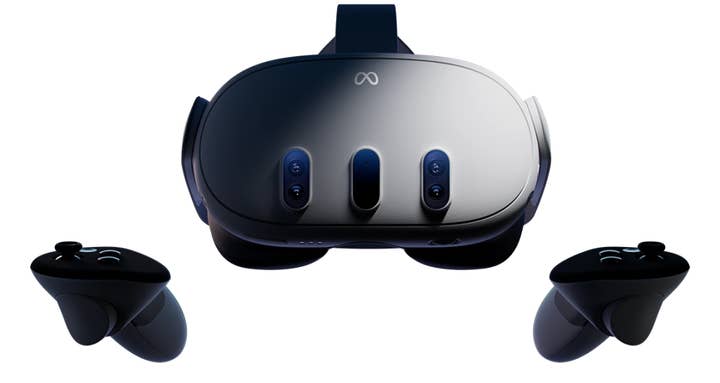
While Meta finally gave up on its Portal video calling devices last year, the company is continuing its foray into hardware with the upcoming Quest 3 VR headset, which means it will continue needing conflict minerals.
Unfortunately, like a number of other companies on this list, Meta's efforts to ensure its supply chain isn't funding human rights abuses seem to be losing steam.
Two years ago, only 1% of the SORs in Meta's supply chain were not certified as conflict-free (or actively seeking certification). Last year, the number jumped to 5%. In this year's report, it more than doubled to 11%.
Meta identified 255 SORs in its supply chain, 27 of which were non-conformant and had not even committed to undergo an assessment.
Meta detailed no significant changes to its efforts, and gave no insight into how it might improve its numbers going forward.
Turtle Beach
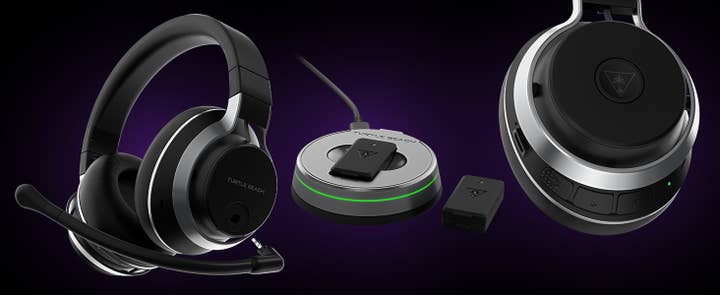
Peripheral maker Turtle Beach pulled a bit of a GameStop, saying "all but 48" of its smelters/refiners were conformant. It wasn't quite as egregious considering Turtle Beach identified 265 smelters/refiners in its supply chain for the year, but that's still only good for an 81.9% conformant rate.
Like many of the companies we looked at, that figure shows a continuing decline. Turtle Beach reported a 92.5% conformant rate last year, which was down from the previous year's 98.4%.
Logitech
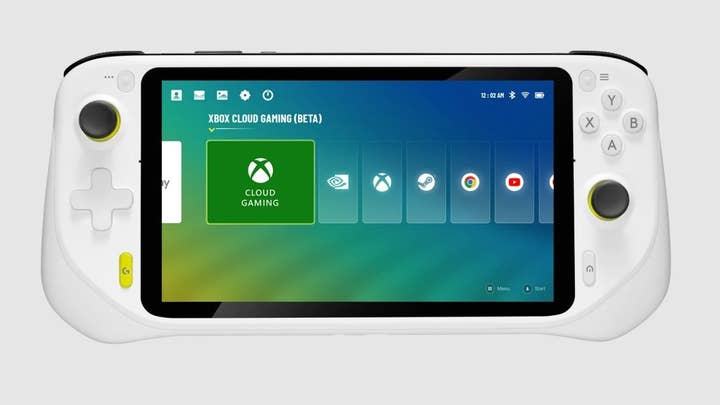
We'll end on the closest thing we have to a high note, as Logitech actually improved its numbers this year, with 96.3% of the 241 SORs in its supply chain conformant, and the remaining handful of operations either active in an auditing program or confirmed to not be sourcing its materials from the countries of concern detailed in the Dodd-Frank Act.
Last year the peripheral maker's conformant rate was 92.5%, with the non-conformant SORs likewise all either undergoing an audit or not sourcing from the Dodd-Frank countries.
Separate from the company's required disclosure, it has also laid out a responsible sourcing of minerals policy that covers cobalt and mica in addition to 3TGs.
Common Terms
There are a handful of terms and acronyms that we use in this the article. Here are a few of the big ones and what they mean:
- 3TG - This means tin, tungsten, tantalum, and gold, collectively the four substances US conflict minerals laws require publicly traded companies to report on the use of in their supply chains.
- SORs - Smelters and refiners, one of the furthest upstream elements in supply chains for minerals, and well-positioned to have visibility into which mines produced their minerals. Companies typically do not do business directly with SORs, so they exert their influence on their suppliers, who may in turn have additional suppliers in between themselves and the SORs.
- Covered Country - As defined by the Dodd-Frank Act, this includes the Democratic Republic of Congo and adjoining countries: Angola, Burundi, Central African Republic, Rwanda, South Sudan, Tanzania, Uganda, and Zambia. Some companies base their disclosures around 3TGs from these areas.
- Conformant - A catch-all description used for smelters and refiners who have passed an audit process to ensure responsible sourcing. These programs are overseen by a number of outfits, including the London Bullion Market Association, the Responsible Jewellery Council, or the Responsible Minerals Initiative.
- CMRT - Conflict Minerals Reporting Template, a standardized reporting measure developed by the Responsible Minerals Initiative to allow companies to gather and submit information about the upstream elements of their supply chains and every link between them and a mineral's smelter or refiner.
Previous years' conflict minerals coverage
Companies began making those disclosures in 2014 and we've reported on them since 2015. You can read our previous reports here:
Sign up for the GI Daily here to get the biggest news straight to your inbox
"conflict" - Google News
August 02, 2023 at 08:48PM
https://ift.tt/pQy6LUl
Microsoft's concerning conflict minerals disclosure reflects industry-wide slippage - GamesIndustry.biz
"conflict" - Google News
https://ift.tt/9qz7KBV
https://ift.tt/YlLUVKw
Bagikan Berita Ini














0 Response to "Microsoft's concerning conflict minerals disclosure reflects industry-wide slippage - GamesIndustry.biz"
Post a Comment